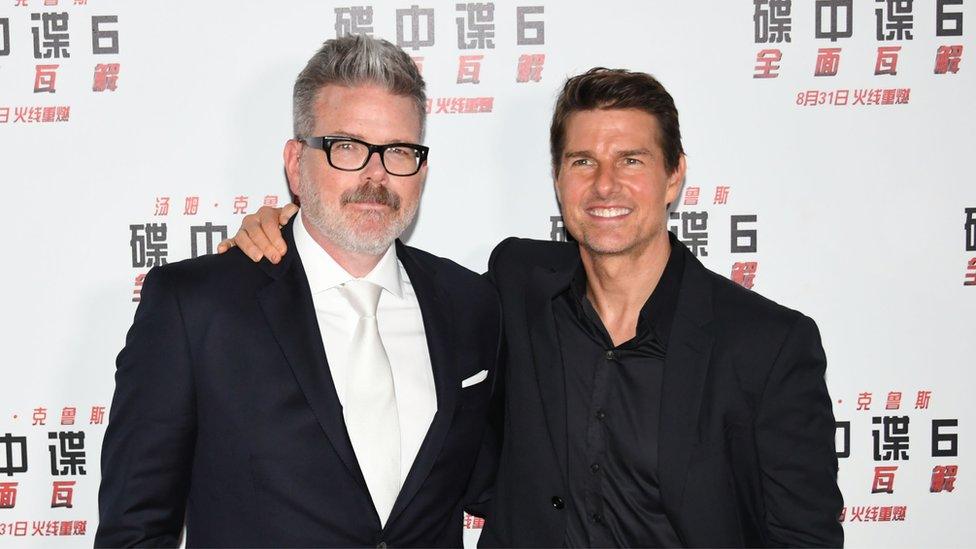Tom Cruise gives lesson in TV settings and 'motion smoothing'
- Published
- comments

McQuarrie (left) and Cruise worked together on the latest Mission Impossible film
Something is keeping movie star Tom Cruise up at night: motion smoothing.
In an impassioned video posted to Twitter on Tuesday, the Mission Impossible star warned that a default setting on many high-end televisions "makes most movies look like they were shot on high-speed video instead of film".
Taking a break from filming the new Top Gun film, he appeared alongside director Christopher McQuarrie, who pleads with viewers to do a quick internet search and find out how to change the correct settings.
“If you own a modern high-definition television," he said, "there’s a good chance you’re not watching movies the way the filmmakers intended, and the ability for you to do so is not simple to access."
Motion smoothing, or interpolation, is a technique that artificially adds additional frames to the moving image in order to prevent blurring - most effective when watching sport.
But many in the film industry hate it, however, as it can degrade the image quality of the original film, and alter colouring.
"It takes the cinematic look out of any image and makes it look like soap opera shot on a cheap video camera,” wrote American director Reed Morano, who started a petition calling for TV makers to turn the setting off, external.
"It is unbelievable that this is a default setting on all HDTVs because essentially what it is doing, is taking the artistic intention away from filmmakers.”
She suggested manufacturers could work with broadcasters to detect when sports coverage was being watched, and change the TV settings accordingly.
In the video posted on Tuesday, Mr Cruise added: “Filmmakers are working with manufacturers to change the way video interpolation is activated on your television, giving you easier access and greater choice on when to use this feature.”
Mr McQuarrie, who directed the most recent Mission Impossible film, said in the meantime people should search “Turn off motion smoothing [your TV brand here]”.
- Published11 September 2018
- Published12 June 2017

- Published14 November 2018
